Profiles: Kathleen Fitzpatrick Fellows
Kathleen Fitzpatrick Australian Laureate Fellowships are awarded to outstanding Australian Laureate Fellows from the humanities, arts and social science disciplines.
[TOC]
Professor Jacqueline Peel (2024)
Research
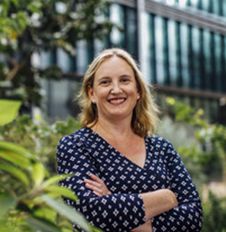
Professor Peel aims to transform international law’s role in raising the ambition and ensuring delivery of companies’ climate promises. By designing implementation tools with policymakers and business, and training future climate leaders in this innovative approach, this project seeks to accelerate policy and law reform for rapidly cutting corporate emissions to net zero. Professor Peel will work with policymakers and peak industry groups to co-design and apply international law tools to provide clear direction about the actions companies must take to align with global net zero goals. This project will position Australia at the forefront of action to accelerate effective corporate climate responses, supporting government efforts to step up international mitigation of climate harms, which acutely impact our environment, economy and region. In bringing together separate research areas, across different jurisdictions, Professor Peel will generate new knowledge on how international law can incentivise ambitious action and improve companies’ climate accountability.
Ambassadorial and mentoring role
Through the Kathleen Fitzpatrick Fellowship, Professor Peel will develop a mentoring and capacity-building program specifically for females of the Global South. This program will draw on Professor Peel’s recent academic work in climate litigation in partnership with the National University Singapore. Professor Peel will support early-to-mid-career researchers (EMCRs) to build their scholarly networks and knowledge of climate litigation for corporate accountability. By training and mentoring a significant cohort of Global South women in strategies and tools for advancing corporate climate accountability which they can use to effect change in their own communities, Professor Peel will facilitate ways to build capacity for effective climate action globally and deliver tangible benefits for the lives and livelihoods of women adversely impacted by climate change.
Professor Janeen Baxter (2023)
Research
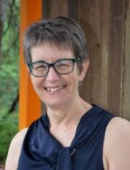
Professor Baxter aims to provide the theoretical and empirical foundations to reverse the trend of Australia slipping backwards in achieving gender equality in comparison to other countries. This project will provide a new approach that explains why changes to legislation are not enough, and why we must turn our attention to caregiving and social relationships in the home to progress gender equality. Professor Baxter’s research will demonstrate how to reduce motherhood penalties in loss of employment and earnings and fatherhood penalties in loss of time with children. It will also identify the life course stages where interventions will be most impactful. It will advance the potential of women and men by increasing knowledge, training, policy and practice for social cohesion and economic prosperity. This research will be pivotal to improving gender equality and essential for ensuring Australia realises its potential to create better and fairer outcomes for all.
Ambassadorial and mentoring role
Through the Kathleen Fitzpatrick Fellowship, Professor Baxter will provide opportunities for postgraduate students and Early Career Researchers (ECRs) to establish international connections early in their career. This will provide a foundation on which they can further build capacity, collaboration, mentoring and international opportunities.
Professor Baxter will draw on her networks with leading feminist and life course scholars around the world to establish an annual international researcher-in-residence school for postgraduate students and ECRs. One international visitor per year will be invited to spend time in Australia to offer an intensive week-long course on a selected topic relating to gender inequality, social research methods or social policy and translation.
Image credit: University of Queensland
Professor Larissa Behrendt (2022)

Research
Professor Behrendt aims to reduce the harmful overrepresentation of Aboriginal and Torres Strait Islander people within the criminal justice, coronial and child protection systems. This will be achieved through the development of a framework that will be incorporated within these institutions, resulting in changed decision-making processes which specifically define the ways Indigenous peoples are treated. The new processes will support positive outcomes for Indigenous peoples and their communities: reducing the current overrepresentation will improve socio-economic outcomes for First Nations people; contribute to closing the gap in life outcomes; and support the broader national priority of ensuring safe and healthy communities. Meaningful collaboration with the Aboriginal community-controlled sector and utilisation of existing relationships with Australian legal institutions are hallmarks of project design. Research outcomes will be shared in forms directly accessible to Indigenous communities and the Aboriginal community-controlled sector - including as film, websites and podcasts.
Ambassadorial and mentoring role
Professor Behrendt will facilitate a mentoring network with a skills-based program. Curating a space for ten early career First Nations women/non-binary scholars and appropriate mentors, the program will include a range of workshops and gatherings - some open to a broader audience - that will provide a space for cultural exchange and professional development. The program will schedule three workshops per year over the period of the Fellowship in addition to two formal meetings of the mentors/mentees. It is anticipated that the mentor/mentees who are paired will also meet informally throughout the year. Workshops will focus on weaving, possum-cloak making, Indigenous research methodologies - including storytelling methodologies, self-determination frameworks. The program is designed to provide both mentoring for talented early career academics and to provide cultural support and a nurturing cultural space to high-performing First Nations academics.
Image credit: University of Technology Sydney
Professor Sundhya Pahuja (2021)
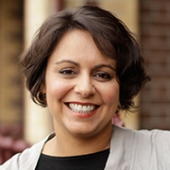
Research
Professor Pahuja’s Laureate project aims to address the rising power of global corporations, and the challenge it poses to democracy in Australia and beyond. Corporations have gone global, but the mechanisms to ensure they serve the public interest, pay tax, and comply with national laws have not. So far, international law has not been able to help. This project will develop a new account of the relationship between states and corporations and identify reforms to international law and institutions to remedy the current imbalance. This project, and the new generation of researchers it will train, will enhance Australia’s capacity to hold global corporations to democratic standards, legal accountability and taxation, and establish Australia as a world leader in maintaining that balance going forward.
Ambassadorial and mentoring role
Through the Kathleen Fitzpatrick Fellowship, Professor Pahuja will establish a regionally centred network of early and mid-career women researchers and policy professionals. Through a series of visiting fellowships, workshops, seminars and masterclasses over five years, she will cultivate collaborative approaches to conducting research, which is responsive to public needs, and generative of inter-state dialogue in the region.
Masterclasses on new and old methods of research dissemination, from opinion pieces to podcasting, to microdocumentary making, will cultivate in network members, the skills to contribute to public dialogue on pressing problems. Sharing the resources generated will contribute to collective efforts to foster the next generation of women research leaders and policy professionals.
Image credit: The University of Melbourne
Professor Maureen Dollard (2020)

Research
The project will assist Australia meet its UN Sustainable Development Goal to promote decent and safe work by producing new knowledge to support radical reform to Australia’s corporate climate. Only 52% of Australian workers report that their workplace is psychologically healthy. Bullying rates are high, work pressure is increasing. The Fellowship will establish the world’s first Psychosocial Safety Climate Observatory, a research platform to gather, analyse, and synthesise, national and international data. By inspiring world-class researchers to build state of the art knowledge and tools for work climate change, Australia will be an authoritative leader in human-centred, more psychologically healthy, innovative and productive workplaces.
Ambassadorial and mentoring role
Through the Kathleen Fitzpatrick Fellowship, Professor Dollard will bring together Australian female PhD Thinkers to advance interdisciplinary inquiry about how to tackle wicked problems in the field such as how to protect the psychological health of non-traditional workers such as gig workers. With the support of the Fellowship, a Thinker in Residence will work with participants to develop a cooperative research plan to address a key issue. The Kathleen Fitzpatrick activities will build solid links for the PhDs to value and become skilled at interdisciplinary thinking and methodological approaches and will boost career advancement for a future generation of Australian women researchers. Each year 10 female Australian PhD students (50 in total) will be invited to join (for 2 years in a row) the Thinker in Residence, the Laureate and other Australian academics in a 2 day workshop to discuss a contemporary workplace issue related to the Australian Laureate Fellowship. PhD candidates will be selected from diverse disciplines especially where female researchers are under-represented.
Professor Lynette Russell (2019)
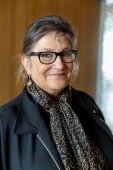
Research
Professor Lynette Russell AM is a Professor at the Monash Indigenous Studies Centre at Monash University. Professor Russell's focus is on developing an anthropological approach to the story of the past. Her historical interests are far ranging - across the 18th to the 20th centuries, from Aboriginal people in the maritime industry, to museums and museum collections, to the history of anthropology itself.
For her research achievements, she has held the positions of President and Vice President of the Australian Historical Association and was elected Fellow of the Australian Academy of the Humanities 2019; the Academy of Social Sciences of Australia in 2013; and, Fellow to the Royal Historical Society in 2012.
Professor Russell aims to examine one thousand years of dynamic encounters between Australia’s Indigenous peoples and voyagers from the sea. The project will use an interdisciplinary, multilingual team to generate new understandings by synthesising historical, archaeological, anthropological and linguistic sources from Australian and European collections. The outcomes of Professor Russell’s project include an innovative reconstruction of Australia’s role in global exploration, enduring international collaborations, and a massive open, interactive and translated database. This should provide significant benefits, creating a new transdisciplinary intellectual school, with the potential to recast Australia’s history, national identity, and place in the world.
Ambassadorial and mentoring role
Professor Russell will run an annual five-day early career researcher mentoring workshop based at Monash University, Melbourne. Attendance, travel and accommodation will be provided. The workshop will be delivered by a range of outstanding Indigenous and non-Indigenous scholars. The workshop will focus on enhancing the skills of Aboriginal and Torres Strait Islander women early career researchers in the first instance. The focus of this program will be to provide mentoring in leadership, career development, and planning for Aboriginal and Torres Strait Islander women researchers in the humanities and social sciences, education and law.
Image credit: Monash University.
Professor Marilyn Fleer (2018)

Research
Professor Marilyn Fleer aims to research concept formation in infants, toddlers and preschoolers by examining imagination in play-based settings and in homes. Quality early childhood experiences can impact positively on life choices and career pathways. The outcome of this project will provide baseline evidence, build on teachers’ strengths in play-based settings, and test a new early childhood model of teaching science, engineering and technologies, while monitoring uptake and adoption to build Australia’s early childhood research capacity. It is expected that the results will build capacity in research in early childhood science, engineering and technologies, positioning Australia as a Research leader.
Ambassadorial and mentoring role
By establishing Kathleen Fitzpatrick Fellowships, Professor Marilyn Fleer will provide opportunities for female early childhood (EC) educators and early career researchers to engage internationally with the leading EC science, engineering and technologies researchers.
The Fellowships will provide travel costs and childcare, for two PhD students or early career researchers and two early childhood educators, to participate in an annual research think tank on EC and SET, at the University of Oxford. Over the five-year period, 20 women will have the opportunity to develop ongoing networks and relationships for collaboration and future research initiatives.
Professor Ann McGrath (2017)
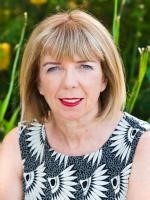
Research
Professor Ann McGrath’s Laureate project will analyse Australia’s Indigenous narratives alongside relevant new scientific evidence to create a big picture history of Greater Australia—the prehistoric continent Sahul. The project aims to transform the scale and scope of history and as a result redefine periodization and reorient this history in a wider global context. Professor McGrath’s project will develop new interdisciplinary techniques to critique the evolution of disciplines, the world history and prehistory divide, and the Cambridge training nexus for researching the deep human past.
Ambassadorial and mentoring role
Professor McGrath, with support from The Australian National University (ANU), aims to develop two initiatives to mentor early career researchers and enhance educational pathways for young indigenous women.
Professor McGrath’s National Residential Postgraduate Workshop on Deep Human Histories, is a series of workshops developed for female postgraduate students to be run across 2018, 2019 and 2020. The workshops will integrate discussions on conceptual challenges, such as cross-cultural temporality, giving students the opportunity to gain feedback on their work in progress and new mentoring networks.
Professor McGrath will also pilot two Ancient Memory Programs in regional areas for Aboriginal women disengaged from education. Developed in close consultation with community Elders, Community Councils, ANU’s Tjabal Centre and Indigenous education experts, the programs aim to introduce young women to tertiary education pathways, exposing participants to a variety of rich knowledge traditions.
Professor Sharon Parker (2016)

Research
Professor Sharon Parker plans to study how transformative work design promotes meaningful, healthy, and productive work. The ‘what, how, where, when, and who’ of work is changing: the digital revolution is reconfiguring work processes more rapidly and on a much larger scale than ever before, and the demography of the workforce is profoundly shifting. Work design is a crucial but neglected strategy for optimising health, for unleashing employee talent, and for creating agile and effective organisations.
Ambassadorial and mentoring role
In her ambassadorial and mentoring role, Professor Parker will undertake a variety of activities, such a literature review on women academics’ careers, including influencing factors, the design, pilot, and evaluation of an evidence-based program to provide early career academic women with support, mentoring, skill development, and networking to enhance their research effectiveness. Professor Parker also plans to introduce a second evidence-based program that is targeted at decision makers, leaders, and professional staff who make decisions that affect women’s careers.
Professor Adrienne Stone (2016)

Research
Professor Adrienne Stone’s Laureate project aims to address the need to reconcile the tensions between the pursuit of diversity and the promotion of social cohesion. This critical problem becomes increasingly urgent as nations grapple with the challenges of highly diverse multi-cultural societies.
Professor Stone aims to build a team of researchers who draw on the experience of constitutionalism throughout the world to investigate how Constitutions, in their design and in their application, can unify while nurturing the diversity appropriate for a complex, modern society. This project is intended to help governments, judiciaries and the public resolve intense controversies over ideals.
Ambassadorial and mentoring role
Professor Stone will create the Kathleen Fitzpatrick Visiting Postdoctoral Fellow and the Kathleen Fitzpatrick Visiting Doctoral Fellow. The Visiting Fellowships will be advertised internationally, and will allow outstanding female researchers to visit Melbourne and work with the project for one to two months each year. The Fellows will be closely integrated into the project and the academic life of the Centre for Comparative Constitutional Studies taking part in project events and workshops and participating in work-in-progress seminars.
Professor Stone will also host Early Career Workshops—a series of one-day early career forums to enable outstanding female early career researchers to discuss their work-in-progress with senior scholars attending the project’s workshops. Professor Stone will also provide bursaries to allow two outstanding female scholars to attend the annual Melbourne Institute of Comparative Constitutional Law.
Image courtesy: The University of Melbourne.
Professor Anne Orford (2015)

Research
Professor Anne Orford’s Laureate project aims to answer the question of whether and if so when it is lawful for external actors to intervene in support of parties to a civil war. The urgency of this question and the difficulty of finding general principles to address it are illustrated by the intensity of debates about the legality of intervention by numerous countries in Iraq and Syria and by Russia in Ukraine.
Professor Orford will build an interdisciplinary team to develop new legal concepts to make sense of the responsibilities of external actors in civil war, taking into account new norms and practices developed to protect civilians and to fight terrorism. It aims to provide governments, parliaments, and the public with a framework for understanding the legal issues involved in decisions about intervention.
Ambassadorial and mentoring role
Professor Orford has created two visiting fellowship schemes—the Kathleen Fitzpatrick Visiting Postdoctoral Fellowship and the Kathleen Fitzpatrick Visiting Doctoral Fellowship. The Kathleen Fitzpatrick Visiting Fellowships are designed to enable outstanding female doctoral and early career researchers to visit the Melbourne Law School and work with the Laureate Program in International Law for one to two months. The Fellows are closely integrated into the program.
Each year the Laureate Program in International Law will bring to Melbourne Law School a series of visiting professorial and professional fellows to work with program researchers. The Laureate Program will host an early career workshop with each visiting professorial or professional fellow. At those workshops, Laureate program researchers, Kathleen Fitzpatrick visiting fellows, and selected early career researchers undertaking related projects will present their work in progress, giving them the opportunity to build international networks and gain feedback on their work in progress from leading scholars in the field.
Over the course of her Fellowship, Professor Orford will also act as an ambassador for women in international law research globally, conducting masterclasses and workshops for early career researchers in countries including Colombia, Finland, Russia, Singapore, Sweden, the UK, and the US.
Image courtesy: The University of Melbourne.
Professor Joy Damousi (2014)

Research
Professor Joy Damousi’s Laureate project aims to generate new and powerful understandings of the impact and experiences of child refugees in Australia throughout the twentieth century and early twenty-first century, to explore how this history is tied to the history of Australia’s international role on refugee and migration issues, and to examine how our past can inform us about current and future approaches to humanitarian immigration.
Ambassadorial and mentoring role
Professor Damousi runs a five-day, Australia-wide research leadership mentoring program, the ARC Kathleen Fitzpatrick Laureate Fellowship at University of Melbourne for early career women in the humanities and the social sciences. The focus of this program is to provide mentoring in leadership for the most outstanding of Australia’s women researchers in the humanities and social sciences. It involves workshops on all aspects of developing and sustaining leadership in a research career.
It involves participants presenting their research; commenting and providing feedback on drafts; and exposing participants to a variety of speakers who would share their own experiences. In addition to these practical activities and direct mentoring of their own research projects, this program offers participants an exploration of a range of skills such as developing career strategies and enhancing career progression.
Image courtesy: The University of Melbourne.
Professor Glenda Sluga (2013)
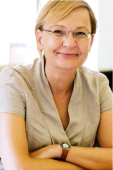
Research
Professor Glenda Sluga’s Laureate project will position Australia as a leader in research that investigates the historical legacy of internationalism—from international institutions, practices and ideas, to the international order—in the early twenty-first century. Professor Sluga’s project intends to provide a genealogy of how, in the years after 1815, economics and politics intersected historically to make the modern global world.
Ambassadorial and mentoring role
Professor Sluga is undertaking a series of initiatives to promote and assist the discussion of women in the humanities (both as researchers and as the subjects of research), setting research agendas at the highest levels and providing assistance to Early Career women. She is also working to promote the work of women in international history through short-term junior research fellowships, and visiting fellowships.
Image courtesy: The University of Sydney.
Professor Susan O’Connor (2012)

Research
Professor Susan O’Connor’s Laureate project has investigated modern human dispersal, adaptations and behaviour along the southern maritime route to Australia. Using strategic testing of archaeological and biotic deposits, museum collections and predictive modelling, it has helped us understand the unique adaptive and cognitive abilities that were required to make this journey.
Ambassadorial and mentoring role
Professor O’Connor has administered an internship scheme in the Australian National University’s Department of Archaeology and Natural History, which has allowed recent female graduates paid time to write up their PHD research for publication.
She will also undertake an academic workshop at the Australian Archaeological Association Annual Conference, which will seek to discuss gender levels in archaeology from undergraduate to post graduate and across all academic levels (teaching and research) across Australian universities.
Professor Pippa Norris (2011)

Research
Professor Pippa Norris’ Laureate project aimed to investigate how to make democratic governance work. In particular, the project has deepened and advanced understanding of the causes and consequences of problems of electoral integrity around the world (Please see The Electoral Integrity Project).
Ambassadorial and mentoring role
Professor Norris conducted three initiatives focused on research and capacity development.
The research initiative looked at the barriers to gender equality in elected office, especially the use of quota laws and reforms to internal processes of candidate selection within political parties. Professor Norris’ Electoral Integrity Project (EIP) has conducted new comparative research on this subject, including the Perceptions of Electoral Integrity rolling expert survey which monitors equal opportunities for women to run for office, along with many other factors, in 213 elections and 153 countries worldwide from mid-2012 to mid-2016.
A related policy advocacy and analysis component has focused upon the use of gender quotas designed to strengthen gender equality in elected office, and the pros and cons of alternative ways these can be implemented. This has generated several major policy reports for regional organisations, including UNDP Asia-Pacific and the OSCE, and policy advisory presentations in countries as diverse as Mongolia, China, Vietnam and Bangladesh.
The EIP project also developed the skills and capacities of younger women scholars. Visiting semester-long scholarships and internships were created, bringing around three dozen international visitors to The University of Sydney during the last five years, including many women graduates in the final stages of completing their PhDs and female visiting scholars as well.
Image courtesy: The University of Sydney
